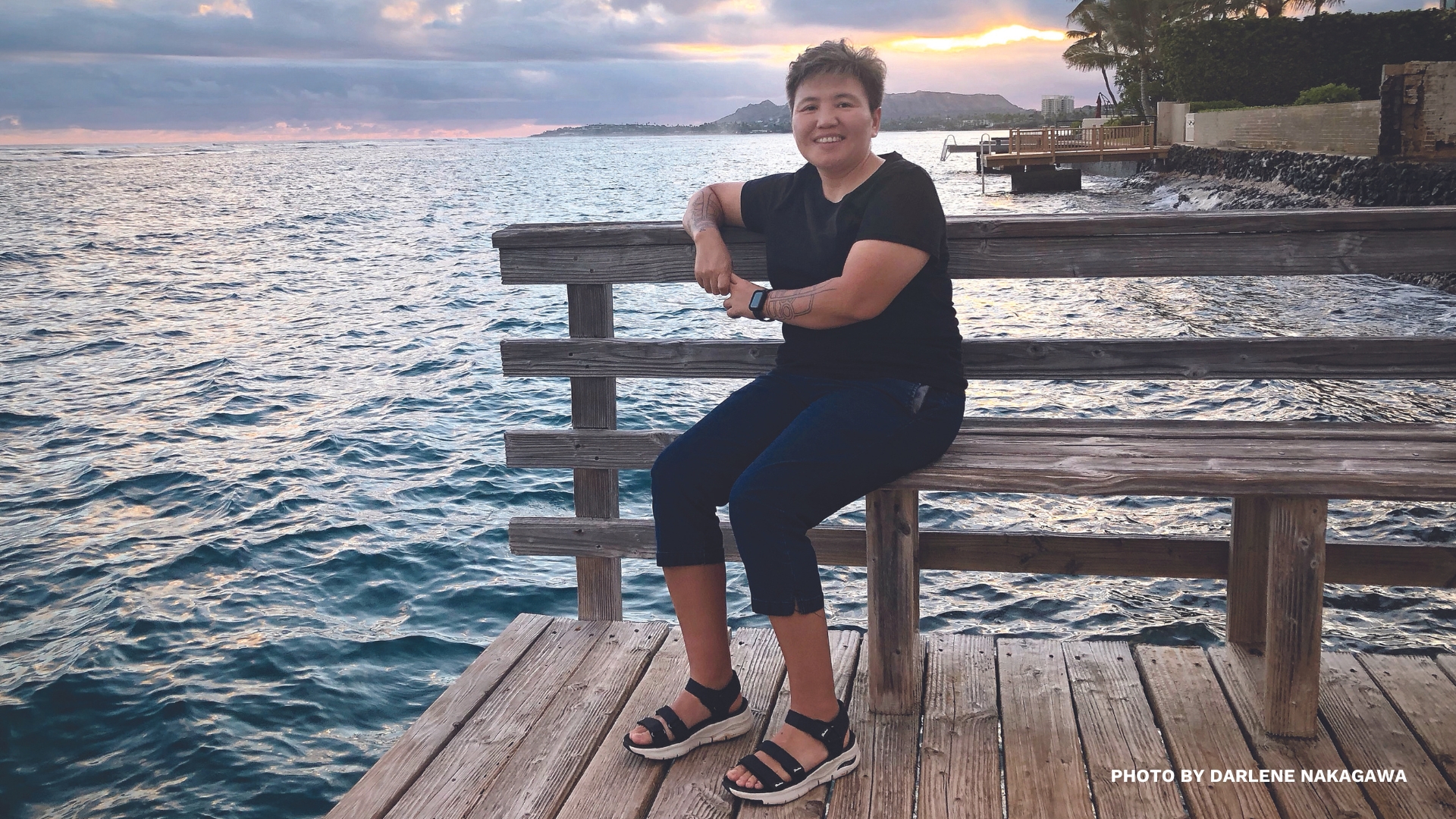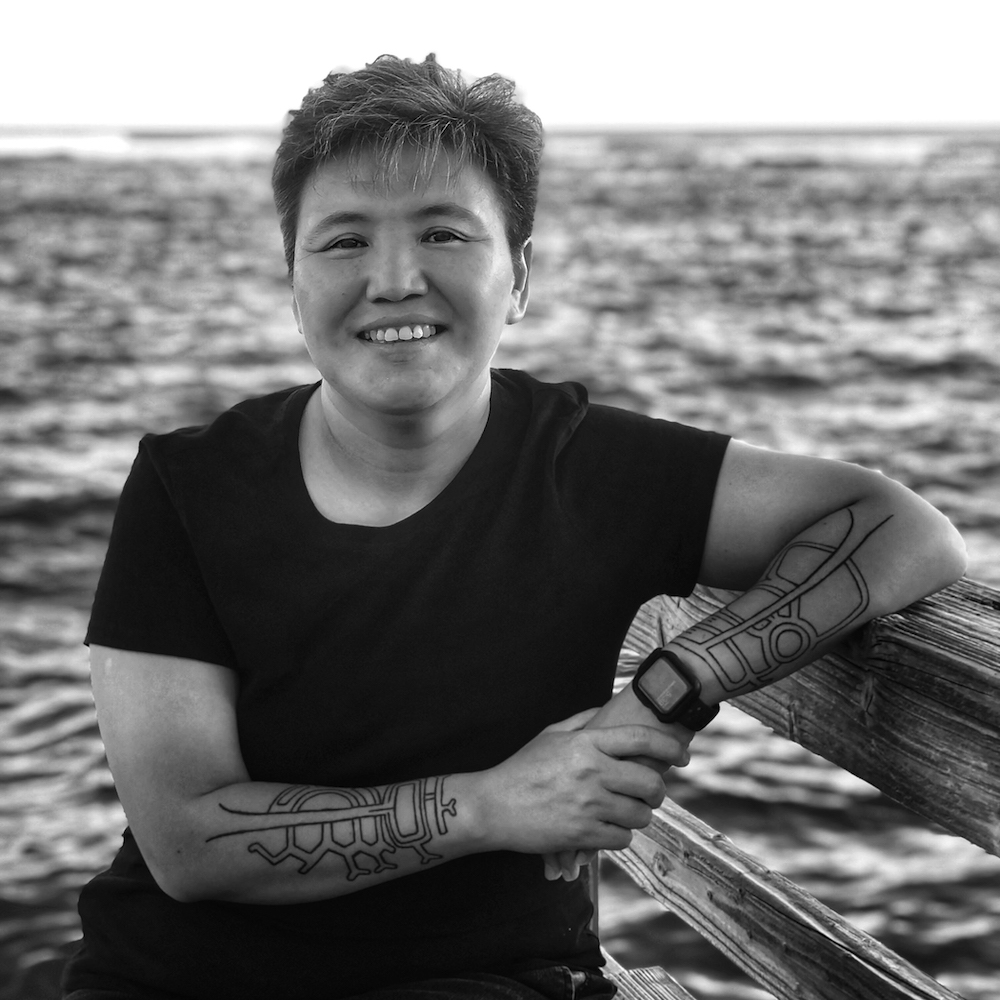Finding my way back to my roots.
Hawaii time is ticking at 2:51 a.m. Even busy Honolulu retains the peacefulness of a quiet island at night. The sound of the waves and moonlight stir within me a yearning for connection. Today is a good day to reflect on my journey.
I became a naturalized American citizen on May 10, 2023. I was born in the USSR during the height of the Cold War in 1977 in the small Yupik village of Sireniki in the Providensky District of Chukotka. For us Yupiget (plural), the Cold War started when a Soviet airborne regiment base was established in the Yupik territory of Avan. In response, the US closed its border in 1948, which communicated to us that US national security interests outweighed the interests of the local people. As a result, my Yupik people were split in half by the International Date Line, separating relatives on either side of the Bering Strait without any communication for the next four decades.
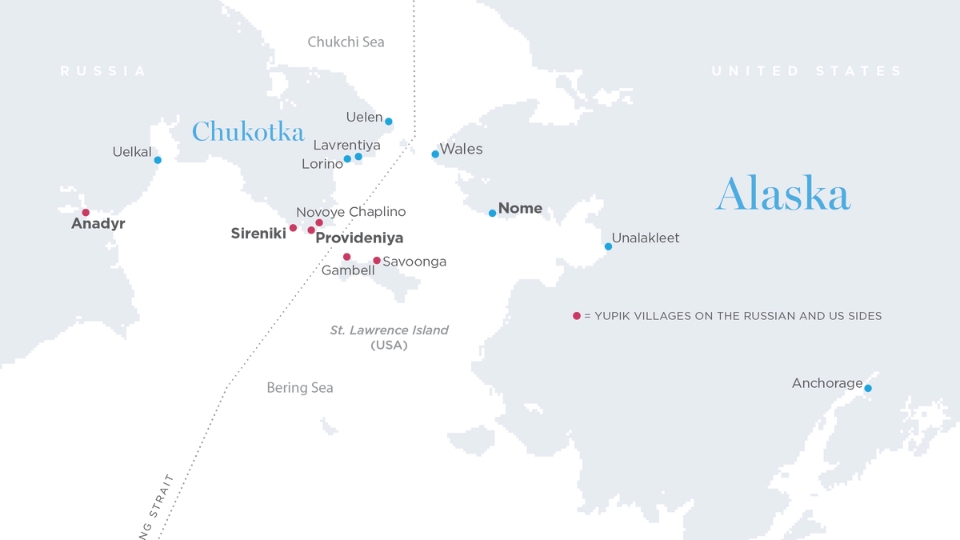
Early in his days as leader of the USSR, Nikita Khrushchev recognized how close Chukotka was to Alaska, which was then a territory of capitalistic America. In secret, a massive government presence transformed our Yupik land into a key nuclear site. The government built dugouts, barracks, and bomb shelters on top of ancient Yupik settlements. The highest points of our mountain slopes became anti-aircraft batteries, and the narrow coastal lines became artillery fields. Hidden tanks surrounded Avan.
The high number of military installations called for highly qualified personnel. In 1910 the census in Avan counted 80 Yupik. By the 1980s, old Avan territories of Provideniya and Ureliki totaled 8,000 newcomers. Tightening its grip on the border area, the USSR closed traditional ancestral villages and forced Native people to move to larger, integrated communities.
Most of the Chukchi people domesticated and owned reindeer. The government mobilized local authorities to settle nomadic Chukchi people, ordering them to surrender their herds to the Soviets. Reindeer herders were uprooted from their homes in interior tundra and their reindeer confiscated. The herders were placed in foreign Yupik villages on the coast with no support. Sireniki became a new home for many nomadic families. Reindeer herders and Yupik saw themselves as two cultures, neighbors and trading partners, living in separate, self-sufficient universes.
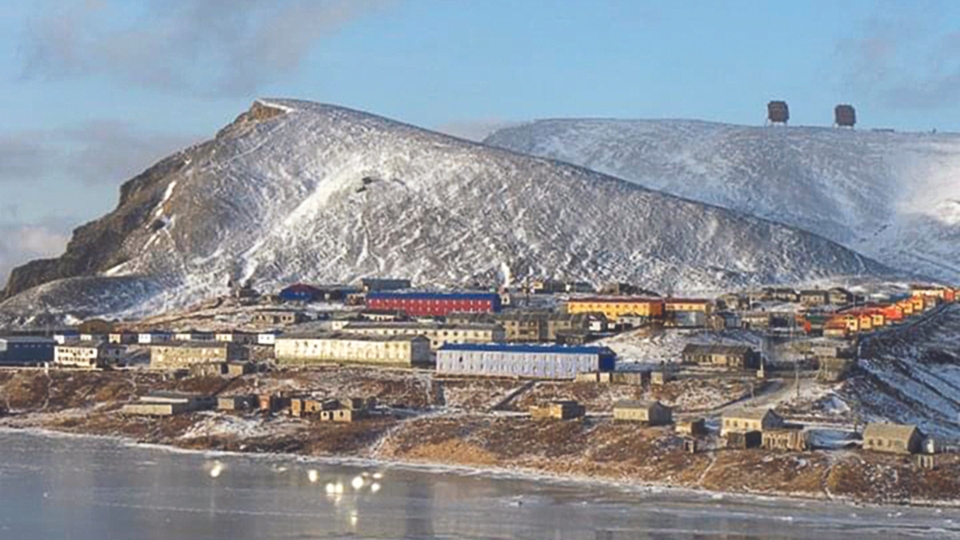
Military antennas on top of the mountain overlooking the village of Sireniki, Chukotka, Russia.
Traditionally, both Yupik and Chukchi specialized in trapping for winter clothing. Coastal people rendered marine mammal fat for food and for oil lamps. But the Soviets commercialized these cultural practices. Collective farms sold oil for manufacturing products on the mainland and exported fur to larger markets. The fusion of Soviet tactics and Arctic traditions created a strange new life cycle. Stuck between two worlds, no longer traditional Yupik and never truly Russian, we learned to adapt and survive.
After the fall of the USSR, nuclear peace thawed the Cold War but backfired on the Chukotka people. The government transported nuclear weapons from our region in 1986. A biblical-scale exodus of all qualified personnel followed as they fled the Soviet Arctic, causing immediate and total paralysis of the community. Remaining residents did not see paychecks or pensions for months at a time. Even during brutal winters, we suffered without electricity or heat. Ships and sea vessels stopped coming to Chukotka altogether. We had no supplies or food for two years, causing a severe hunger crisis. Infectious diseases such as measles and dysentery spread, and local clinics and hospitals were closed. Doctors and medical staff could not work because there was no money to pay their salaries. There was no food to feed patients and medicines expired. I suffered from dysentery and MRSA. My eight-year-old sister suffered from scabies and lice. No authorities acknowledged our dire situation.
Of Russia’s 145 million people, we are the only ethnic group with blood ties to Americans—the Yupik on St. Lawrence Island. Chukotka, which is the easternmost federal subject of Russia, is only two miles from Alaska. That means our Provideniya region is under constant governmental surveillance.
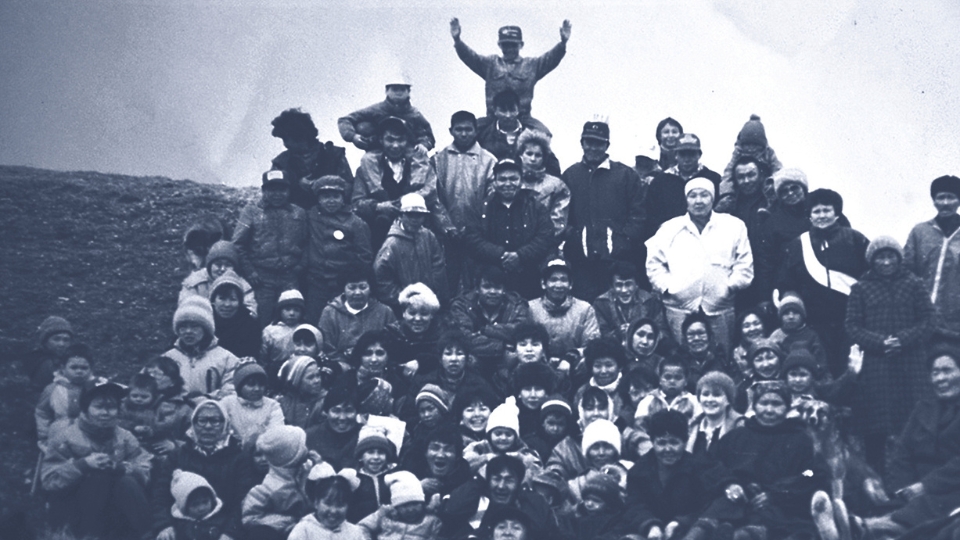
Sireniki church in 1995. No buildings in the village could hold over 100 people, so they met out in the tundra.
In 1994, when I was 16 years old, I answered the call to serve as a missionary. Later I joined a church in Provideniya whose pastor was American. The FSB (the KGB’s successor) sent an agent to every worship service, and we were always conscious of being watched. Being born into a lack of freedom meant we didn’t always recognize our own suffering.
In addition to the government surveillance, locals resisted our church activities as well. My windows were often vandalized. Other believers in our church and I were repeatedly attacked and beaten because of our faith. When I moved to another village, a group of men broke through my door my first week there. They attacked me and told me to get out of the village, or I would end up like two women who had been raped and killed there. I was beaten and sexually assaulted throughout the five years I lived there. I developed complex PTSD as a result of the violence and persecution I experienced serving in ministry, as well as the alcoholic and brutally abusive household where I grew up.
In 2004, I obtained a religious worker visa and traveled to Nome, Alaska, to volunteer at KICY, the Covenant affiliate radio station that broadcasts in Russian to Chukotka. My visa required that I travel back to Russia every 90 days, and if direct flights were unavailable between Nome and Provideniya, I had to fly to Anadyr, the capital of Chukotka. Each time I did that, I received a notice that I had to meet with border guards for questioning, and an FSB officer escorted me on my flight from Anadyr to Provideniya because security was so tight around our Yupik land, which had become a restricted zone.
Recognizing the challenges of my visa situation, KICY general manager Dennis Weidler suggested that I apply for a religious worker visa. After a few attempts, I was able to get that visa. But I had always planned to return home at some point, so when that visa was due to expire, I decided to move back home. I felt called to serve among my own people in Chukotka.
I returned to full-time ministry at my church in Provideniya. The border guards notified me that I was required to visit the local border guard base, a branch of the FSB, where they questioned me for about two hours, asking why I had returned home. Eventually they released me, and I was happy to be with my family and friends, even though it meant my whereabouts were constantly being monitored.
Two years later my best friend confessed to me that an FSB officer had asked him to report on me. Every week they wanted to know everything about my days, including what I ate for meals. My friend had been visiting me every other day and documenting everything I did to the FSB.
I needed space to process that betrayal so I returned to Nome. When I told Dennis Weidler what was happening, he suggested I request asylum. After a few restless nights, I decided to follow his advice. KICY and the Alaska Conference stepped up to the unequal challenge. It was 2014, and the political winds were not in my favor. Because the government was seeking to decrease the flow of immigrants into the US, the first attorney we consulted turned down my case, saying I had zero chance of succeeding. Curtis Ivanoff, Alaska Conference superintendent, introduced Dennis and me to an immigration attorney who attended the Covenant church in Anchorage. She warned us that my chances were 50/50, but she took my case.
I waited for my interview for three years. Finally, in July 2017, the USCIS officer granted me asylum, and a year later, I received permanent residency status.
Getting a green card meant I could apply for a job at the Nome Post Office. I also continued to volunteer at KICY, helping to spread the gospel to places where I could not go. Serving with KICY offers me the only way
I can connect with my people.
Nome served as an intensive care unit for my critically injured sense of Yupik identity.
Coming to the United States from Russia was a culture shock. But being introduced to my own Indigenous culture in the US triggered an even deeper shock. I had no idea how detached I was from my own origins. Nome served as an intensive care unit for my critically injured sense of Yupik identity. Hearing stories in my native language and sharing laughs and hugs helped me find my way back to my roots. It was mind-blowing to see how freely Native people could be themselves. Nome and KICY helped me to nurture myself back to life.
The sweet people of Nome immediately made me feel at home and included me in their traditional activities. I didn’t need to speak English to dry my first fish. It felt right to pick greens, edible roots, and berries. My new friends took me egging (gathering wild eggs) and moose hunting. Nothing made me feel self-conscious or “not-Russian-enough.” I got to experience a strong emotional and spiritual connection to the land firsthand. It provided a much-needed spiritual balm for my soul.
I started writing as a means to pay respects to my people. I am writing about my journey to rediscover my heritage and roots across the Bering Strait. I am writing to my grandfather who belonged to the last generation of speakers of the Sighineghmiit language. I write about my life in the Soviet and post-Soviet Arctic.
Writing brought me in touch with the very deep trauma that my family, my people as a whole, and I suffered from the Sovietization process. This trauma has lasting effects on all of us today. Alcohol abuse, child neglect, and suicides are just a few of them. At some point, I realized I could no longer be exposed to all of that in my everyday life. I had to leave to heal.
I fell in love with Hawaii when I first visited. Locals are making significant efforts to heal racial trauma. I learn and heal just by being here.
I fell in love with Hawaii when I first visited in 2008, and I was able to transfer from my job at the Nome Post Office to Honolulu. The main reason for my move is the demographics. Honolulu is one of the only cities in the US whose Caucasian population is only 17%. Ethnic minorities make up the majority here. Locals are making significant efforts to heal racial trauma. I learn and heal just by being here. In addition, nature and the weather have a beneficial effect on me. Little did I know when I lived in the Arctic that I suffered from seasonal depression. The extreme change in seasons—from 24 hours of daylight to 24 hours of darkness—can really mess with your head.
The power of technology also allows me to continue to serve at KICY every day. My apartment has a remote radio station, and there is no disruption to the gospel message to Chukotka.
The FSB still attempts to intimidate me. On April 3, 2023, an FSB agent visited my aunt’s house and asked whether I was still in contact with her or my other relatives in Russia. When she told them I am writing a book, one officer warned her not to let me publish anything that criticized Russia, particularly regarding the war in Ukraine. They brought my uncle to the Sireniki border patrol station to interrogate him about me.
I’ve tried to be as quiet as possible throughout my 20 years in the US but I am sick of being quiet. The authorities still found reasons to harass my family in an effort to silence me. They will continue to oppress and hurt us. Now that Russia is being sanctioned by most countries in the world, the hungry beast is trying to keep its genocidal machinery going.
It took me nearly two decades to find the courage to share this article. Although the journey of healing and rediscovery continues, I am so relieved I can take my running shoes off and rest. God has walked with me through it all. I am deeply grateful to my KICY family for fighting with me and for me. I am grateful and humbled. Life only begins.
A version of this article first appeared in KICY Call Letter, the newsletter of Radio Station KICY, a ministry of the Alaska Conference of the Evangelical Covenant Church.


